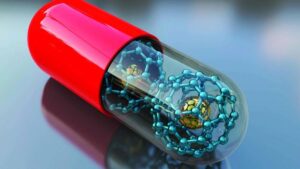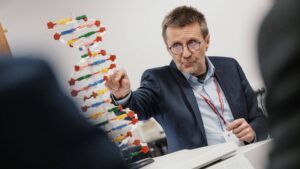The Science Blog
Guides
In the modern era, data is often referred to as the new oil. The ability to predict future trends and behaviours has become a key asset for businesses and organisations. Predictive analytics combines mathematics, big data, and machine learning. It is at the forefront of this transformation. This guide looks at predictive analytics. It covers Read More
In the changing world of healthcare, nanotechnology is making a big difference. This is especially true in the growing field of nanomedicine. This new method uses tiny particles to change how we diagnose, treat, and prevent diseases. Nanomedicine was once just a sci-fi idea. Now, it’s real and offers better treatments and improved patient outcomes Read More
Understanding and Combating Antibiotic Resistance Antibiotic resistance is a rising global health issue. It could make everyday infections hard to treat. Bacteria are getting better at fighting our antibiotics. This is causing superbugs to appear. Superbugs are germs that can resist many drug treatments. The World Health Organization (WHO) warns that antibiotic resistance is one Read More
CRISPR technology is a powerful tool in synthetic biology and bioengineering. It may change genetic therapy for good. The idea of editing genes to cure genetic diseases, once confined to science fiction, is now a tangible reality. To understand CRISPR’s potential, we need to look at how it works, its scientific advancements, and the challenges Read More
Lately, there has been a renewed interest in psychedelics for mental health treatment. These substances were once on the fringes of science and society. Now, they are being looked at again for their possible health benefits. Psychedelics can change how we see things and think. Research shows they might be key in treating different mental Read More
The pharmaceutical industry is undergoing a profound transformation, driven by artificial intelligence (AI). AI is changing drug discovery. It improves computational chemistry, boosts predictive modelling, and streamlines clinical trials. Traditional drug discovery is slow, expensive, and uncertain, taking over a decade and costing upwards of $2.6 billion per drug. The failure rate is also high, Read More








